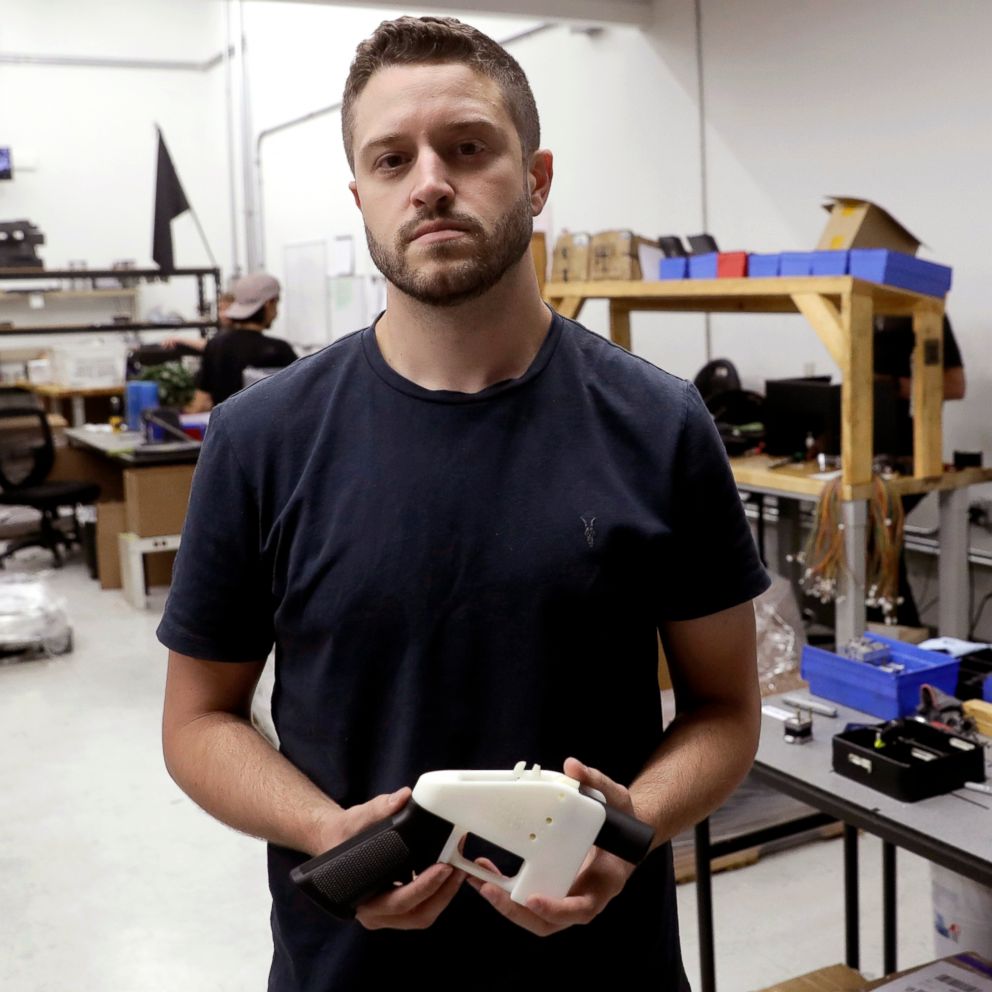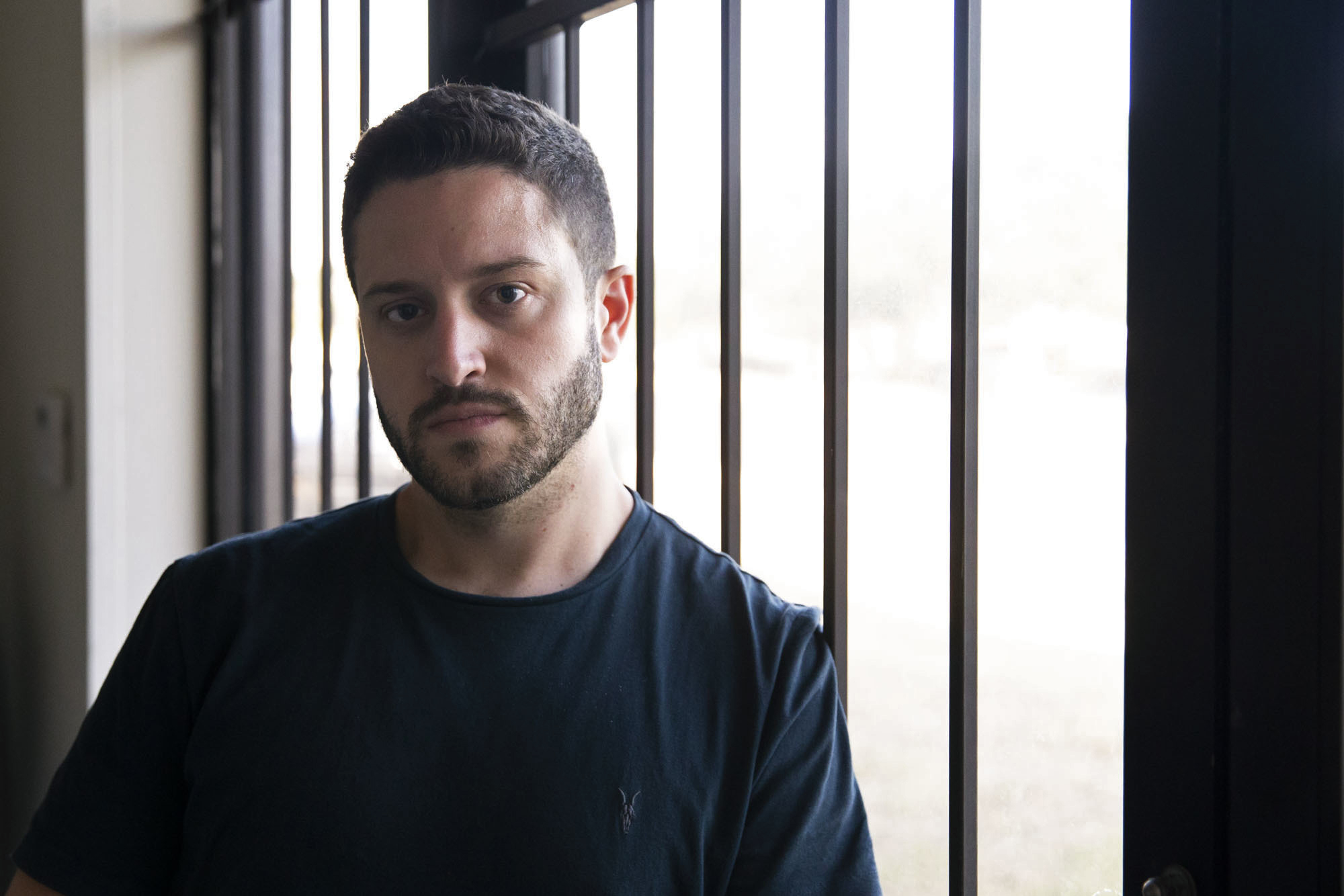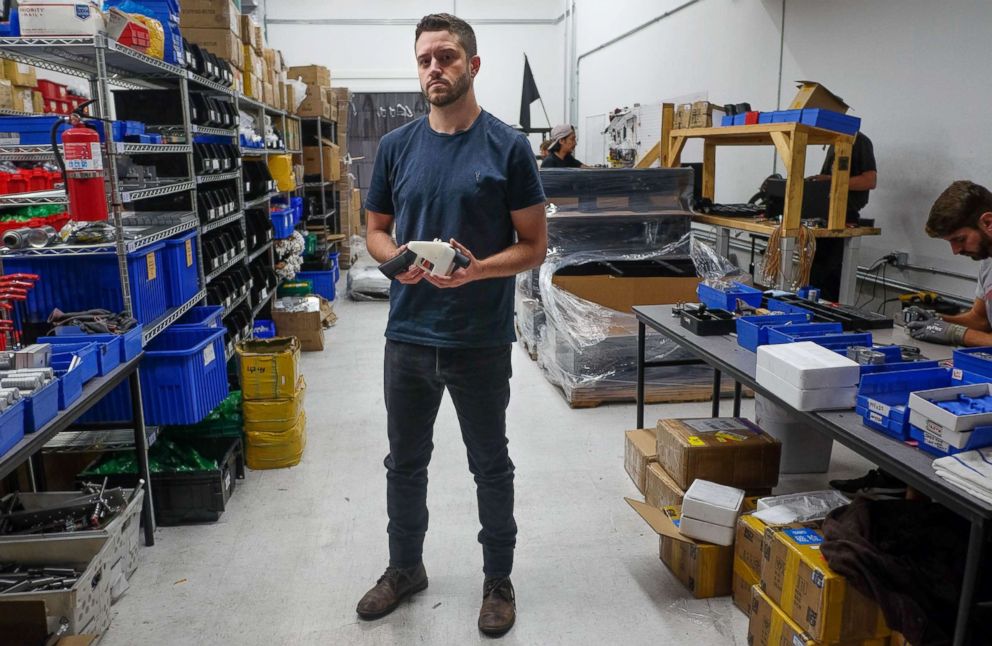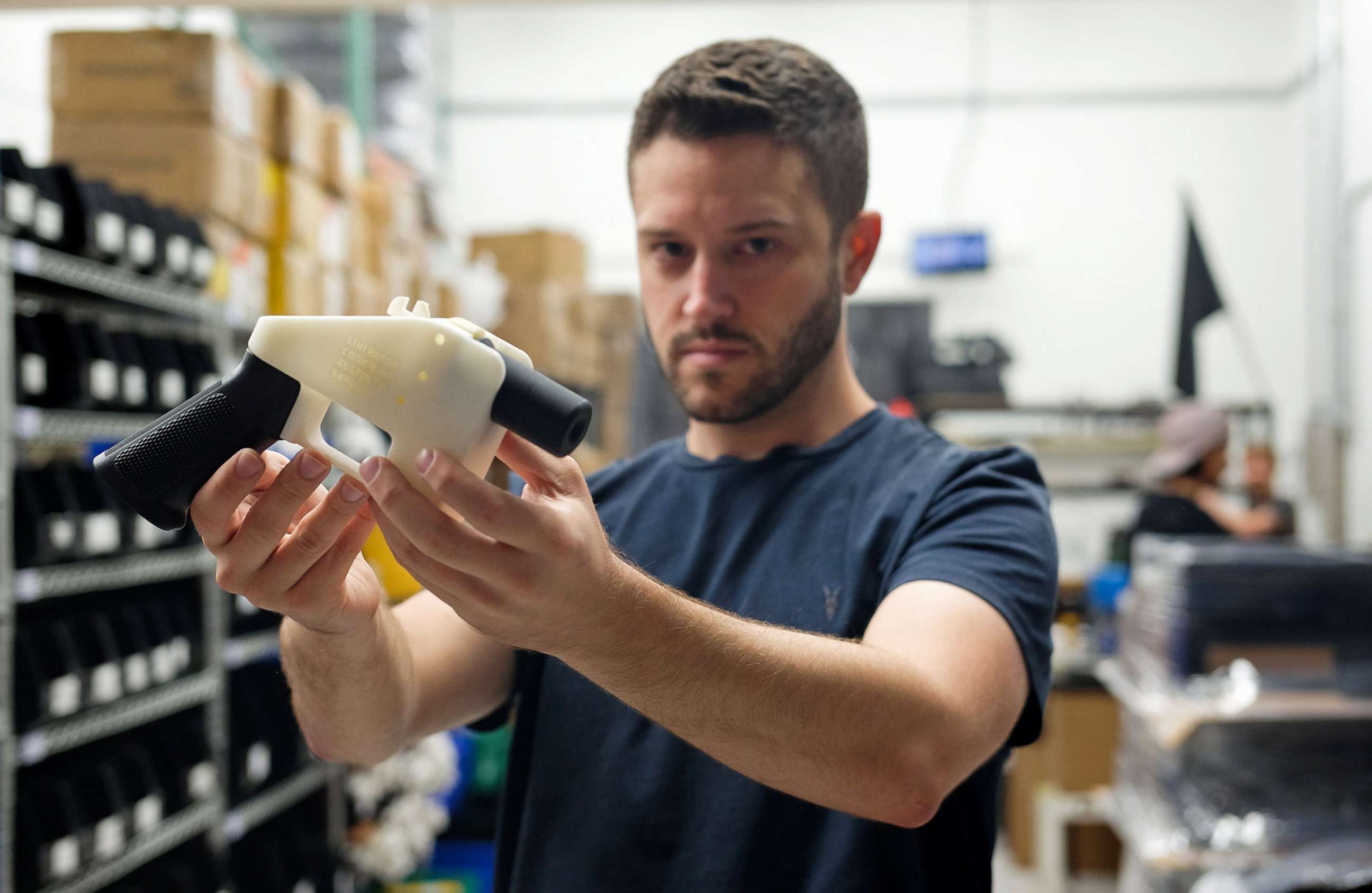3D gunmaker extradited back to Texas to face charges of sexual assault of 16-year-old girl
Cody Wilson, the 3D gunmaker, will face sex assault charges in Texas.
Cody Wilson, the controversial 3D gunmaker, was extradited to the United States from Taiwan and appeared in a Texas courtroom Sunday on felony charges of sexually assaulting a 16-year-old girl.
The U.S. Marshals Service took custody of Wilson after he arrived at George Bush Intercontinental Airport escorted by Taiwanese police.
He appeared in a Harris County courtroom in handcuffs and was informed that a warrant had been issued for his arrest in Travis County on the felony offense of sexual assault and advised of his rights to an attorney.

When asked by a judge if he had any questions, Wilson responded, "No."
He was later booked at the Harris County Jail, and released on $150,000 bond late Sunday. Wilson did not respond to questions from reporters as he exited the jail and a taxi driver rushed to cover his face with a towel.
Wilson's lawyer, Samy Khalil, provided a statement to Houston ABC station KTRK Sunday night: "We are glad that Cody is back in Texas again where we can work with him on his case. That's our focus right now, representing our client and preparing his defense."
Wilson, 30, was arrested on Friday night at a hotel in Taipei, Taiwan, authorities said.

"This was a collaborative effort that demonstrates the dedication of local, state, federal and international officials working together to bring this fugitive to justice," Susan Pamerleau, U.S. Marshal for the Western District of Texas, said in a statement.
Authorities issued an arrest warrant for Wilson on Wednesday in connection with the alleged sexual assault of a minor investigated by the Austin Police Department.
Wilson, who lives in Austin, owns Defense Distributed, which sells blueprints for producing plastic firearms using 3D printers.
Austin police launched an investigation after learning a 16-year-old girl from Central Texas told a counselor she'd had sex with Wilson on Aug. 15 in a local hotel before he paid her $500, according to the arrest warrant affidavit filed Wednesday in Travis County District Court.
Wilson traveled to Taiwan after a friend informed him the victim had spoken to police, Austin Police Cmdr. Troy Officer said at a news conference on Wednesday.

Marshals worked with their Taiwanese counterparts to locate and detain Wilson after he missed a scheduled flight back to the United States, authorities said.
In the arrest warrant affidavit, Austin police said they received a call from a counselor Aug. 22. The counselor reported that a client, a girl under the age of 17, had reported having sex with a 30-year-old man a week before.
On Aug. 27, police were present when staff from the Center for Child Protection interviewed the alleged victim. The girl said she'd met the man on a so-called arrangement dating website and that he'd used the screen name "Sanjuro," according to police.
A search of the girl's cellphone uncovered messages to the site as well as links to messages from "Sanjuro," police said. And, in one message, "Sanjuro" identified himself as Cody Wilson, police said.
Wilson's Texas driver's license picture also matched the "Sanjuro" profile image on the website, police said.
Wilson and the girl met at a coffee shop Aug. 15 and left together in a black Ford Edge, police said. Officials said the vehicle was similar to a 2015 black Ford Edge registered with Wilson's business, Defense Distributed.
Police said Wilson took the girl to the Archer Hotel in Austin, where surveillance footage reviewed by police showed them exiting an elevator on the seventh floor. Hotel records also showed that Wilson was the lone registered guest for room 718 on that date, police said.

Wilson sexually assaulted her and then "retrieved five $100.00 bills from a bag on the floor" and gave her the money, the alleged victim told police, according to the affidavit.
Video showed the two leaving the hotel, the affidavit alleged. Wilson later dropped her off at a Whataburger restaurant, she told authorities.
Wilson could face up to 20 years in prison if convicted, authorities told ABC Austin affiliate station KVUE-TV.
In 2013, Wilson -- a self-described "crypto-anarchist" -- successfully fired a bullet from the world’s first 3D-printed handgun and posted its blueprint online. The video got nearly half a million views and the design was downloaded nearly 100,000 times.
The link was later terminated by law enforcement officials.
Years of litigation followed, leading to a settlement in July allowing Wilson to re-release the gun’s downloadable blueprints.
Over the summer, however, a federal judge temporarily stopped him from putting the blueprints online and in August, a federal judge in Seattle extended the injunction after a coalition of states and the District of Columbia said making untraceable plastic weapons available would create a public safety issue.
Later that month, Wilson said he'd started selling the plans for producing plastic firearms using 3D printers despite an injunction blocking it.




